What is constipation?
Constipation is a condition in which bowel movement is less than three times in a week (1). In constipation, the bowel movements become less frequent and stool becomes dry, hard, small in size and painful to pass. Constipation leaves the sufferer with the sense of incomplete evacuation.
Bowel movement pattern can vary from person to person, with some people having bowel movements on daily basis and some experiencing one such movement once in three day. As long as you’re within this range, your bowel is healthy! Whereas, constipation is common and temporary in nature most of the times and maybe the result of diet, routine, hormonal imbalance, and side effect of medications. It’s not a disease but a symptom of other conditions.
What are the causes of constipation?
Causes of constipation in adults
In adults, constipation maybe the result of one or multiple following reasons (2, 3):
- Dietary habits are the key cause of constipation. This may include less water intake, less fiber in your diet, depriving your body from the necessary fiber and nutrients as in dieting and disruption of eating schedules as happens during travelling (4, 5). However in some cases, decrease in dietary fiber intake may be helpfu in treatment of chronic constipation (6).
- Moreover, eating a diet rich in fats can also make your gut movements sluggish. This happens when you eat too much fried and junk foods (4).
- Frequently ignoring and suppressing the urge to pass stools (7).
- Lifestyle with less mobility or activity, not doing adequate exercise also makes you more prone to develop this condition (8).
- Hormonal and emotional imbalance also has a great impact on your constipation status. Constipation maybe the result of depression, anxiety and stress (9).
- Constipation maybe the side effect of several medicines like painkillers, antidepressants, iron pills, antacid with calcium and aluminum. Moreover, constipation is one of the basic complaints of patients taking medicines to lower blood pressure and for allergy issues (1).
- A healthy thyroid means a healthy gut. If you’re having thyroid problems, like hypothyroidism, you’re more like to suffer from constipation as well (10).
- Overuse of laxatives, which initially stimulate and then stop working and may even cause rebound constipation (11).
- Constipation is common during pregnancy and after child birth due to the compression of uterus on intestine and due to hormonal imbalance (12).
- Patients with diabetes can have damaged nerves that also affect their food digesting ability, which ultimately leads to constipation (13).
Some other causes of constipation in adults may include:
- Irritable bowel syndrome (IBS) (14)
- Hypocalcemia – presence of calcium more than normal (15)
- Muscular dystrophy – a genetic disorder of muscle wasting (16)
- Multiple sclerosis – nervous system gets affected (16)
- Parkinson's disease – co-ordination of bowel movements is affected due to this brain disorder (16)
- Spinal cord injury (16)
- Anal fissure – the anus contain small tears (17)
- Inflammatory bowel disease – inflamed intestine (irritated and swollen) (18)
- Colon or rectal cancer (19)
Causes of constipation in children and babies
It is quite common among children and babies. In the UK, one out of three babies can have constipation. Following might be the most important causes of constipation among children (20, 21):
- Like adults, babies should also get significant fiber in their diet, over fed, less use of the fluid babies having too much milk usually got constipation.
- Make sure your child doesn’t feel stressed and anxious of using toilet. Parents should not intervene when kid is using toilet, otherwise, it will make them anxious, which can leads to constipation.
- Sometimes kid feel stressed about using toilet. They may have some kind of phobia not to use toilet during school timing that might result in ignoring and suppressing the urge to pass stool, which ultimately leads to the pain while passing stool and constipation.
Some other causes of constipation in children and babies include:
- Hirschsprung's disease – difficulty to pass stools due to affected bowel
- Anorectic malformation – improper formation of baby's anus and rectum
- Spinal cord abnormalities
- Cystic fibrosis – a genetic condition in which body produces thick mucus, which can lead to constipation.
Symptoms of constipation
Once you have constipation, you may experience some or most of the following symptoms (22, 23):
- Infrequent bowel movements. Remember the rule of three! If you’re having 3 bowel movements in a day or 1 bowel movement in 3 days that’s normal. Bowel movements less than that indicate constipation and should be dealt with.
- Hard and firm pellets confirm constipation.
- Other symptoms might be bloating, fatigue and nervous exhaustion, abdominal pain, and sense of incomplete evacuation
How constipation is diagnosed?
Constipation is very common. While you may sometimes handle it with just a little change in your diet and lifestyle you should always consult your doctor (usually a GP - General Practitioner) if the problem persists for more than one week (24).
Stomach and rectal examination
Usually your GP will first ask you about your symptoms and your previous medical history. He or she will ask you about your diet, exercise and any recent changes of your routine, which may have caused the constipation.
In case of severe constipation (fecal impaction - collection of hard and dry stools in your rectum) or if he or she deems necessary, your physician will examine your stomach and perform a rectal examination.
This is done not only to get dry stools out of your rectum but also to check for rectal bleeding, which may be a sign of a serious problem (such as cancer) (25, 26).
When diagnosing constipation in kids or babies, a pediatrician (doctor for children) usually does stomach examination (touching the tummy of the kid). Rectal examination is performed only if it is absolutely unavoidable.
Other test for constipation
In case of severe symptoms, your doctor may perform blood and/or thyroid function test to identify the underlying cause of constipation.
Other tests helpful in diagnosis of constipation are as follows:
- An x-ray of your abdomen.
- Transit study examination – in this test a special capsule (which can be viewed on x-ray) is given to patient and after that one and two x-ray are taken just to see how much time it take to pass through the digestive system
- Anorectal manometry –working of patient’s muscles and nerves is checked
- Computer tomography (CT) scan or colonoscopy may be requested in case of colorectal cancer.
Convential (medical) treatments for constipation
Causes, time duration and severance of the symptom are important in constipation treatment. Initial recommendations maybe change of diet, increase in regular intake of the fiber, drinking plenty of water and doing regular exercise. If these changes don’t work much then your GP may prescribe you an oral laxative that will help in emptying the bowel (27, 28).
If above changes do not help you then your doctor may suggest you laxatives. Laxatives are the kind of medication that can help you pass stool. There are many each with different in effects.
Bulk-forming laxatives
A doctor may start with any kind of medication that help by adding bulk to your stool. So, bulk forming laxatives may help in curing your constipation by make your stool soft and easy to pass.
While using bulk forming laxatives, you have to use plenty of water/fluid. Also, avoid using them before going to bed, for good result you have to wait for two and three days after using laxatives like ispaghula husk, methyl cellulose and sterculia.
Osmotic laxatives
If bulk forming laxatives are not working then your GP may switch you to the osmotic laxatives. These laxatives help retain more and more water into your stool, which ultimately stimulates your gut to pass it out quickly. These laxatives increase the amount of fluid in your bowel, so make sure you drink plenty of fluids. Lactulose is commonly used osmotic laxative.
Stimulant laxatives
In case, your stool are soft but difficult to pass then stimulant laxatives would be the recommendation of your GP .These laxatives stimulate muscles in your digestive track and boost the movement of stool in large intestine and anus. Senna, bisacodyl and sodium picosulphate are commonly prescribed stimulant laxatives. They are comparatively quick in action and start working in 6 to 12 hours
Your doctor may give one or a combination of laxatives. If nature of your constipation is short then your GP would advise to lessen the amount of dose and then stop using it gradually.
Treatment of fecal impaction
Dry and hard stool obstructs your rectum and result in fecal impaction. This situation can be handled with using a heavy dose of osmotic laxative, macrogol, followed by stimulant laxatives after some days.
If laxatives are not helping, you may be prescribed some of the drugs given below:
- Suppository – inserted through your anus. Bisacodyl is commonly used
- Mini enema – injected into the anus Docusate and sodium citrate are usually used.
Treatment of constipation in pregnancy
For pregnant ladies it’s better to change their diet and make lifestyle changes as mentioned above. But, if still problem persists then it’s safe to take laxatives because they don’t get absorbed into your digestive system. Osmotic laxatives, like lactulose, are safe in pregnancy (29). If it is not working then your GP can suggest you to take bisacodyl or senna (stimulant laxatives), whereas senna is slightly absorbed by the digestive system.
Treating constipation in babies and children
Constipation in babies less than six months is very common. Mother should take plenty of water to help them out, but if they are feeding on formula milk then it will be better to strictly follow the instruction of amount of water to add to the powder. Move the baby’s’ legs in circular motion and gently massage their tummy for bowel stimulation.
Babies who have started taking solid food
After six month of feeding, if baby starts taking sold diet then it will be preferable to encourage him to take fruit and plenty of juices and water fruits like apricot, grapes, apples, raspberry, peaches, pear, plum, and strawberry. These fruits and juices will really help him in dealing with constipation naturally.
But, still if your baby is constipated then you can give him laxatives. Bulk forming laxatives are not good for children and its better if you give them stimulant laxative (30).
Children
For children, it’s better to take laxatives with change in diet. As a first choice, osmotic laxatives are given first but if they are not effective, stimulant laxatives can also be given to the children. Change children’s diet to fruits, vegetable and wholegrain food like pasta and bread.
You should encourage your child for positive toilet routine. Give him ten to fifteen minutes to pass his/her stool.
66 home remedies to relieve constipation
Dietary routine and lifestyle reduce the risk of the constipation. Constipation can be avoided if you are taking balanced diet and doing ten to fifteen minutes workout or a walk on daily basis. But sometimes, that’s not enough. You need some assistance in such conditions. Medical methods are mentioned in the previous sections. If you’re looking for something to treat constipation in nature’s corner then this section is for you. We’ve compiled the biggest compilation of all natural sources that are proven to help with constipation. We can safely claim that there is no compilation of natural constipation relievers as extensive as this one. So, read on to treat the foe of constipation once and for all!
Herbal remedies to treat constipation
When nature puts you in trouble (constipation is our doing most of the times), it makes sure to give you plenty of ways out too. This is what herbs are for treating constipation. You just don’t need to strain and exhaust yourself. You can take the help of several herbs that are proven to help with constipation.
Psyllium
Psyllium is the perfect herb for relieving constipation. This magic herb must be present in your home all the times if you are looking for some speedy solution for constipation. Psyllium has been long used as a bulk laxative that is packed with high content of fiber. It the Psyllium husk that does the real work. When Psyllium husk is taken with water, it swells up in the intestine by absorbing water. This adds bulk to the stool and makes the passage of stool easier through the intestine, aiding in providing relief from constipation (31). Psyllium husk can be taken daily without any harm.
How to use Psyllium?
Take 5g of Psyllium twice a day with a large glass of water, but do not exceed more than this. Using this remedy daily will provide you a constant relief from constipation.
Senna
Senna is another wonderful herb with a remarkable potential to relieve constipation. This herb has got medicinal impacts and is now used as an ingredient in a number of herbal laxatives due to its stimulant properties. Senna herb is enriched with powerful stimulating ingredients known as glycosides and sennosides, which make this herb an excellent stimulant laxative. The ingredients of senna interact with the muscles of colon and improve their contractility, which helps in pushing the stool quickly through the gut.
How to use Senna?
You can make your own herbal tea at home by using senna leaves. Take about 100 grams of senna leaves and steep them in boiling water for approximately 10 to 15 minutes. Then strain the tea and drink it. It will take about 12 hours for senna to initiate its action. But remember, senna herb is not recommended for long term use and it should not be used for more than 10 days. Using it for long time can eventually weaken the colon muscles. Pregnant women, children and people suffering from some colon disorder such as Crohn’s disease and ulcerative colitis should avoid using senna as a laxative.
Dandelion root
If you are looking for some mild herbal laxative then dandelion root is the herb of choice. Dandelion root is well known for its mild laxative action (32). Apart from its laxative action, this outstanding herb is enriched with plenty of vitamin A, vitamin B, vitamin C, potassium, iron and zinc.
Dandelion root helps in relieving constipation by increasing the bile secretion, which improves the fat digestion in the intestine. Dandelion also aids in making your gut more mobile, allowing the stool to pass through the intestine with ease. Dandelion root has got a sweet taste and can be consumed as herbal tea.
How to use dandelion root?
Take 1 teaspoon of dried dandelion root and steep it in boiling water for 10 minutes. Strain it and then enjoy the hot tea. Drinking two to three cups of dandelion root tea helps in alleviating constipation. However, people suffering from gall stones should avoid using this herbal tea as it will aggravate their problem.
Flaxseeds
Flaxseed is another exemplary natural way that can be used for getting rid of mild to severe constipation (33). Flaxseeds can be used as a bulk producing laxative. These seeds are packed with a lot of fiber, vitamins, minerals and polyunsaturated fats such as omega 3 fatty acids. This fiber retains water and forms a gel like matter that helps in softening the stool. Flaxseeds also help in stimulating the peristaltic contractions of the gut, while the protective role of omega 3 fatty acids, present in flaxseeds, aids in improving the overall gut digestion.
How to use flaxseeds?
Take 2 tablespoons of ground flaxseeds daily with a large glass of water. Drink plenty of water throughout the day because if you do not drink enough water while taking flaxseeds, it can make your constipation worse. Or else you can soak the seeds in water for few hours before consuming them.
Marshmallow
Here comes another effective herb for constipation with soothing and anti-inflammatory properties. This medicinal herb is widely known for its use in a number of medical conditions such as irritable bowel diseases, stomach ulcers and constipation. This herb contains a sticky or gel like mucilage matter that forms a protective layer over the gut lining, thus soothing the inflammation. This mucilage like substance present in marshmallow softens the stool and promotes the gut mobility. Furthermore, the anti inflammatory action of this herb aids in soothing the pain associated with constipation (34).
How to use Marshmallows?
Brew the marshmallow tea by steeping two teaspoons of dried marshmallow root in boiling water for 15 minutes. Strain the tea and sip it slowly.
Fenugreek
Fenugreek seeds are used as an effective herbal remedy for curing chronic constipation. Like other bulk forming laxatives, this natural herbal laxative contains high content of fiber. When fenugreek seeds are taken, the fiber traps water in it and becomes a gel like matter which adds bulk to the stool. When this fiber swells up, it exert pressure on the gut wall that initiates the gut contractions and relieves constipation (35).
How to use Fenugreek?
Fenugreek seeds can be consumed in a number of ways. Boil a teaspoon of fenugreek seeds in water for a few minutes. Filter out the seeds and then store the extract in a bottle. Drink this extract throughout the day to get relief from constipation. Or you can soak the fenugreek seeds in water for 1-2 hours. When the seeds swell, make their paste and consume it with water.
Basil
This medicinal herb is well reputed for its healing and anti inflammatory properties. Apart from its soothing effect, basil is proven to be an effective herbal laxative (36). The antibacterial and anti inflammatory action of basil help to improve the digestive health. The better the digestive health, the more healthy will be the bowel movements. Thus, by promoting healthier bowel movements, basil proves to be beneficial in providing relief from constipation.
How to use Basil?
Basil herbal tea can be prepared easily at home by steeping 1 teaspoon of dried basil leaves in a cup of boiling water for 15 minutes. Remove the residual leaves and sip the tea then. Basil herbal tea can be taken two to three times a day without any fear of hazard or side effect.
Fennel seeds
When it comes to curing constipation, the importance of fennel seeds cannot be forgotten in this regard. Fennel seeds prove to be excellent tonic of the digestive system and are widely used for the purpose of relieving gas, bloating and constipation (37). Fennel seeds contain a plentiful amount of antioxidant compounds called flavanoids. These immune system boosting antioxidants tend to improve the digestive health, metabolism and gut motility, thereby relieving digestive problems like constipation and bloating.
How to use Fennel seeds?
Take a cup of fennel seeds and roast them. Grind these roasted fennel seeds to a powder form and store it. Eat 1 teaspoon of this powder after every meal to prevent constipation. Or you can prepare fennel tea by steeping powdered fennel seeds in a cup of boiling water for 5 to 10 minutes. Strain it and enjoy. Fennel seeds are supposed to be very effective in relieving bloating and constipation in children and newborns.
Cascara Sagrada
Cascara Sagrada is one of the most popular and ancient herbs for curing constipation. Even small amount of this herb can produce powerful laxative action (38). Cascara Sagrada contains some special ingredients called anthroquinones that tend to have strong stimulating or purgative action on colon muscles, enabling the muscles to contract forcefully and to produce the urge for evacuation.
How to use Cascara Sagrada?
Cascara Sagrada herbal tea is prepared by adding one teaspoon of dried bark in 3 cups of boiling water. Steep it for 20 minutes and then strain the mixture. Have a cup of this tea before bedtime to facilitate the bowel movements in the morning.
This purgative laxative should not be used for more than 7 days because the prolonged use can make you dependent on the laxative by weakening your colon muscles. Cascara Sagrada is not at all the laxative of choice for pregnant and lactating women and for children under 12 years of age. In addition to this, those who suffer from inflammatory bowel diseases should never use this stimulating laxative.
Rhubarb
Believe it or not, but this bitter and sour herb is an effective antidote for constipation (39). It is the stalk of this herb that hides the property of being an effective laxative within it. Rhubarb stalks contain stimulating compounds known as anthroquinones that are responsible for inciting peristaltic muscle contractions in the colon (40). The stronger the peristalsis, the easier will be the evacuation of feces. But, remember it that stalk of this herb that have the laxative action. So, never make a mistake to use the leaves of this herb as they are full of highly toxic oxalate compounds that can give serious health troubles.
To mask the unpleasant taste of rhubarb, take three stalks of the herb and blend them properly with a cup of apple juice or any other juice you like. Then add some peeled lemon or orange pieces and a bit of maple syrup, as per your need, to enhance the flavor.
Make sure not to use rhubarb for more than a week as it will make your bowel movement dependent on the laxative use. Also, its use is not recommended for pregnant women and children under 12 years of age.
Slippery elm
As the name is indicating itself, this herb is known for its slippery and mucilaginous nature. Slippery elm is considered to be one the best options for curing constipation. This beneficial herb contains a mucilage or sticky substance that tends to have soothing or healing effects. Slippery elm heals the mucous layer of the intestine and motivates the gut to initiate the regular bowel movements. Once the bowel movements get regular, the constipation will be relieved on its own (41).
How to use Slippery elm?
Preparing the herbal tea from slippery elm is the best way to ease out your constipation. Boil two cups of water first and then add two tablespoons of powdered bark of this herb in it. Let is steep for 5-10 minutes and then strain it. Drink this herbal tea twice a day to get relief from constipation.
Aloe Vera
The first word that hits mind about aloe Vera is “the skin healer” but, there is another good thing about aloe Vera and that is its laxative action. Well, that sounds interesting that aloe Vera can work as an excellent laxative without costing you any side effect or trouble (42).
Aloe Vera plant can be found in almost every house. Just take a fleshy piece of aloe Vera plant, cut it and take out the raw gel from it.
How to use Aloe Vera?
Add 2 teaspoons of this gel in one glass of apple juice and drink it. Or you can prepare aloe Vera juice by boiling the aloe Vera piece in water for 45 minutes over low heat. Now throw out the aloe Vera piece and use the extract as an aloe Vera juice. Drink it twice or thrice a day to see prominent results. Aloe Vera’s antioxidant action cleanses the toxins from the gut and promotes the growth of gut friendly probiotic bacteria that helps in making your bowel movements regular.
Licorice
Licorice has been used widely for a number of medicinal purposes for hundreds of years. This sweet herb has got an outstanding potential to fight constipation. The antioxidants present in licorice soothe the gut inflammation and promote the bacterial flora of the gut to flourish. Not only this, these antioxidants increase the bile flow and improve the digestion process, which makes the gut stimulate peristaltic contractions.
How to use Licorice?
Having licorice root tea twice a day is an effective herbal remedy to provide relief from constipation. Boil 1-2 cups of water in a pan and add 1 teaspoon of dried licorice root in it. Keep steeping it for 10 minutes and then enjoy the herbal tea.
Those who suffer from high blood pressure problem should avoid using licorice for long term use as it can aggravate the blood pressure further.
Buckthorn
Buckthorn is another popular stimulant laxative like Senna and Cascara Sagrada. The ingredients of this herb act directly on the colon muscles and cause them to start contractions. These strong gut contractions help to push the accumulated feces through the colon quickly. Buckthorn also helps to retain water in the stools, adding bulk to them and making them soft to pass through the colon.
How to use Buckthorn?
Herbal tea made from buckthorn is also beneficial for hemorrhoids and anal fissures associated with constipation. Boil one cup of water and steep 1 teaspoon of dried herb bark in it for 15 minutes. Filter this hot tea and drink it before going to bed. Having buckthorn tea at bedtime will improve your bowel movements in the morning.
Chicory root
Chicory herb has been used in the past for a number of medicinal and culinary purposes. Chicory is considered to be one of the effective herbal remedies for constipation. This herb is composed of a special substance called inulin, which acts as a fiber and improves the digestion. Inulin promotes the growth of intestinal probiotic bacteria, which further provides support to the digestive process. It also improves the bile release and stimulates the gut contraction.
How to use Chicory root?
To make chicory root tea, all you need to do is to boil one cup of water and add one teaspoon of dried herb in it. Simmer it for 15 minutes and then have it. Daily drinking this herbal tea will keep your bowel movements regular.
Yellow dock
Here comes another promising solution to constipation. Yellow dock seems to be quite effective for constipation relief. This beneficial herb works through two ways. First, it improves the liver function and increases the bile secretion. This bile then speeds up the digestion process in the intestine and act as a mild laxative. Secondly, the ingredients in this herb interact with colon muscles and stimulate the peristalsis. This is how yellow dock helps in easing out the constipation.
How to use Yellow dock?
Take two teaspoons of dried and crushed herb. Add it into 3 cups of water and then let it simmer slowly on the flame for 15 minutes. Now remove the mixture from the flame and let the herb steep for another 10 minutes. Strain the mixture and drink it. It’s better to drink this mixture 15 to 30 minutes before having a meal as it will help in releasing bile.
Indian gooseberry
Indian gooseberry has been blessed with a number of health benefits that you can ever think of. This herb is packed with numerous healthy nutrients such as vitamin C, iron, calcium, thiamine and a number of other nutrients. One of the health benefits of this amazing gooseberry is its anti constipation activity. Indian gooseberry detoxifies the toxins in the gut and improves the digestion, which helps in relieving constipation.
How to use Indian gooseberry?
1 teaspoon of Indian gooseberry powder can be taken with water twice a day to relive indigestion and constipation. Or soak two to three gooseberries in water at night. In the morning, mesh them properly and squeeze out their juice. Drinking this juice daily will improve your gut motility and digestive health.
Rose hips
Rose hip is one of the super herbs for constipation relief. Rose hips contain a plentiful amount of vitamins, minerals, fiber and antioxidants. The antioxidants cleanse the digestive system and improve the digestive health. While, fiber pectin present in rose hips helps to provide relief from constipation. When pectin fiber reaches the intestine, it absorbs water and swells up, forming a soft mass that adds bulk to the stool.
How to use Rose hips?
If you are using rose hips as a remedy for constipation, you must need to eat its pulp. Rose hips are edible but, it’s better to use them in the form of jams or marmalade after removing or peeling their outer hairy part.
Peppermint tea
If you feel constipated and bloated all the time, then why don’t not you give a try to peppermint tea? Peppermint tea, with relaxing aroma and amazing flavor, will give the instant relief from constipation and bloating. Peppermint is considered to be a mild and soothing laxative.
It soothes the gut and reduces the muscle spasm, thereby regulates the digestion and bowel movements. It also helps to promote the bile secretion, which speeds up food digestion in the gut.
How to use Peppermint tea?
The soothing peppermint tea can be made by steeping 1 teaspoon of dried peppermint leaves in one cup of water for 10 to 15 minutes and then straining it afterwards.
Triphala
Triphala powder is supposed to be an effective remedy for curing constipation. Triphala is not just one herb; in fact, it is a combination of three herbs named as Amla or Amalaki, Bibhitaki and Haritaki, all having a potent laxative action. Amla helps to cleanse the gut from harmful toxins, whereas other two herbs strengthen the colon muscles and trigger their peristaltic contractions. These peristaltic contractions help to push the built up fecal matter through the gut easily.
How to use Triphala?
Take 2 teaspoons of Triphala powder and mix them in one glass of warm water. Drinking this mixture before going to bed will make your bowel movements better in the morning.
Nettle
Chronic constipation can make your life a real misery. But now your days of suffering have past because there are a number of herbal remedies to end your suffering. Nettle leaves can help you a lot in combating constipation.
How to use Nettle?
You can make fresh nettle tea on your own by just steeping one cup of nettle leaves in two cups of boiling water. Let it simmer on low heat for 10 to 15 minutes. Then simply take out the residual leaves and enjoy the tea. Drink two cups of nettle tea daily and feel a better difference in your bowel movements.
Do not rely too much on nettle tea as it can cause stomach irritation and will cost you more harm than good.
Hibiscus
This beautiful flowery herb can help you in making your bowel movements more regular. Hibiscus not only soothes the intestinal muscles, but it also tones them up. The mild stimulatory action of hibiscus on the intestinal muscles assists in keeping the bowel movements more regular.
How to use hibiscus?
If you want to make hibiscus tea at home then take few dried up hibiscus flowers and steep them in one cup of boiling water for 5 minutes. Strain the mixture and drink it. You may add some honey or sugar it to make it a bit more pleasant to drink.
Having 1 or 2 cups of hibiscus tea will be fine, but taking too much of hibiscus tea can make you drowsy and sleepy as it has a mild sedative action.
Chamomile
This soothing and pleasant herb has been used traditionally for numerous purposes. Chamomile is an amazing tonic for the digestive system that can help ease out chronic constipation. Chamomile flushes out the toxins from digestive tract and reduces the muscle spasm, allowing the intestinal muscles to contract in a regular manner. When the muscles are contracting fine, then you will have more regular and stronger bowel movements.
How to use Chamomile?
Chamomile tea is so easy to prepare at home. You just need to steep 2 teaspoons of dried herb in one cup of boiling water for 10 minutes. Drink this tea twice or thrice a day to get rapid relief from constipation.
Chickweed
If you feel tired of chronic constipation then it’s time to give at least one try to chickweed herb. Chickweed is a mild stimulant laxative that can be used safely without any side effects. Chickweed through its mild laxative action stimulates the bowel movements and helps you pass the stool more easily. Chickweed keeps the bowel movement regular and helps in preventing serious complication caused by constipation, such as anal fissures and hemorrhoids.
How to use Chickweed?
Add one teaspoon of dried herb in one cup of boiling water. Allow it to steep for 10 minutes and then strain the tea. Add a bit of honey or sugar, as per your need, to improve the flavor. Have this herbal tea two to three times a day.
Angelica root
Angelica root is a Chinese herb that has been long used to treat different gastrointestinal problems such as bloating, heartburn, nervous stomach and constipation. Angelica root acts in a bit different way. It helps to treat constipation caused by intestinal dryness and reduced blood supply. Angelica root soothes the intestinal membranes and improves the blood flow to intestinal muscles. When the muscles are well nourished by blood supply, they become able to contract more forcefully. Thus, having Angelica root tea can bring about a healthy change in your bowel movements.
How to use Angelica root?
Angelica infusion can be prepared by adding 1 ounce of dried Angelica root in two cups of boiling water and then steeping it for 10 minutes. Remove the mixture from the flame and strain it. Drink this infusion twice a day to get healthier bowel movements.
Irish moss
Irish moss is a seaweed with an impressive capability to cure constipation. Irish moss contains sufficient amount of nutrients and fiber. This herb can been used in many ways to cure various gastrointestinal ailments such as gastritis, ulcers and constipation. Irish moss heals the inner lining of the digestive tract while the fiber content present in it helps in lubricating and softening the stool, making it move easily through the intestine.
How to use Irish moss?
To make Irish moss gel or paste, soak a cup of Irish moss in the water. Leave it overnight. In the morning, blend these Irish mosses with a small amount of water. This will give you a thick gel like paste of Irish moss. This paste can be stored in refrigerator for 3 weeks maximum. Eat Irish moss daily to have healthier and stronger bowel movements.
Alfalfa
Nature has blessed this herb with an extraordinary amount of vitamins, minerals, antioxidants and fiber. Alfalfa is the best food for those who are suffering from constipation due to the lack of fiber in their diet. It’s not the bulk forming fiber alone that makes alfalfa a superb food. In addition, it contains a significant amount of digestive enzymes too, which help in speeding up the digestion and stimulating the bowel movements. So, both fiber and digestive enzyme work hand in hand to relieve the constipation.
How to use alfalfa?
The fresh sprouts of alfalfa can be eaten by adding them in sandwiches or by sprinkling them in salads and soups. One thing to be noted about alfalfa is that to avoid its use by those people who are taking anticoagulant or warfarin therapy.
Glucomannan
Glucomannan is the extract obtained from the root of plant named konjac. The name Glucomannan was given to it because it contains polysaccharide fiber composed of glucose and mannose. This fiber has the ability of holding water in it and adding bulk to the stool. The soft and bulky stool will now be easy to pass through the colon without causing pain and effort.
How to use glucomannan?
Glucomannan is easily available in the powder form. Having a teaspoon of this herbal powder daily provides comfort from troublesome constipation.
Parsley
Being constipated all the time seems to have serious consequences. But, one of the best ways to fight this monster is the use of parsley in your diet. Parsley is a potent colon cleanser as it does the work of flushing out harmful toxins from the digestive system. On the other hand, this potent herb stimulates the bowel movements and forces your gut to expel out the stool easily.
How to use Parsley?
There are so many ways to add this delicious aromatic herb to your diet. Fresh parsley can be added in sandwiches, salads or garnished over soups. Or it can be taken as parsley infusion by steeping and simmering parsley leaves in water.
Calendula
Calendula is one of the highly recommended herbs for constipation relief. The gentle cleansing ability of Calendula improves the digestive health by eliminating unwanted waste products from the gut. Whereas, the laxative action of this herb kick starts the bowel movements and relieves the constipation. Apart from being a good and gentle laxative, Calendula tends to soothe the digestive muscles and to keep them healthy and active.
How to use Calendula?
Calendula infusion can be prepared by steeping 1 teaspoon of dried herb in water for 5 to 10 minutes. This tea can be consumed twice a day.
Home remedies for constipation
Sometimes you just don’t feel like going to a grocery store and find the herbs described above. That’s understandable. If that’s the case then don’t fret! We’ve also compiled for you a bunch of home remedies that come straight from your pantry or refrigerator. All you need to do is take out these components and use them in the ways described. These methods are simple, effective, safe to use and above all cost effective. So, read on to know the biggest compilation of the web regarding the home remedies for constipation.
Be sure to keep yourself well hydrated
Dehydration is one of the main causes of constipation. Those who drink adequate amount of water daily are less likely to suffer from constipation because being well hydrated is the only way to remain safe from the trouble of constipation. The food we eat contains some amount of water, but when this food reaches the intestine, its water content is absorbed which gives hard consistency to stool. So, if you are not drinking enough water, then stool will keep on getting harder due to water absorption and it will be painful to pass them.
Drinking at least 8 glasses of water daily is necessary to keep your tummy well toned. Water speeds up the metabolism and helps in breaking down food. Having a glass of water before meal not only helps in boosting the metabolism and digestion, but it also keeps the stool soft and easy to pass. Avoid drinking water during meal or immediately after taking meal because the water will harden the fats and oils present in food and will make the stool hard. One of the best ways to deal with your constipation is to drink 1-2 glasses of warm water, empty stomach, in the morning. Warm water will help cleanse the gut and promote the bowel movements.
Stay active
You will not believe that sitting round the clock in your bed, in front of a laptop and TV or in the office can be the cause of your constipation. This notion sounds absurd; still it has significance because when we are less active physically, our bowel movements become sluggish as well. When bowel movements are slow and irregular, the outcome will be constipation or infrequent passing of stool. In simple words, the easiest way to combat the constipation is to engage yourself in healthy physical activity and lifestyle.
Being physically active keeps your gut toned up and healthy, getting the bowel movements strong and steady. So, if you are in a dire need to get relief from constipation, then say goodbye to the sedentary lifestyle and shake hands with healthy habits and activities. Exercising, walking or jogging daily for a few minutes can serve as fuel for kicking start the bowel movements. Just spend 30 minutes of your precious time daily for a healthy physical activity and see your bowel movements getting more regular.
Eat plenty of fiber
Eat fiber, fiber and more fiber! That is all you require to get triumph over the stubborn constipation. While thinking about the richest sources of fiber, the only things that come to mind are fruits and vegetables. No food is supposed to contain more fiber than fruits and vegetables. The whole talk about constipation revolves around the fiber. It is the lack of this fiber in our diet that is the culprit behind constipation. Fiber is the starchy material present in fruits and vegetables that cannot be digested by intestine. This fiber remains as it is in the intestine and starts retaining water in it, causing it to swell and to become a gel like soft mass. This bulky fiber mass then makes the stool soft and much easier to pass.
The richest sources of fiber include apples, pears, peaches, oranges, grapes, berries, apricots, plum, broccoli, spinach and cabbage. Eating fruits before or after the meal, or having a bowl of fruit or vegetable salad daily will keep you invulnerable to constipation.
Yogurt, the best probiotic
You may have heard the word “probiotics” so many times before. Probiotics are the bacteria that live in our gut without causing any harm. Not all the bacteria are harmful. There are some friendly bacteria too, and probiotics are the example of such friendly bacteria. Our gut is inhabited by health friendly probiotic bacteria known as lactobacillus acidophilus, which are critical for proper functioning of the digestive system. These healthy bacteria help relieve the constipation by accelerating the digestion and stimulating the bowel movements. If, due to any reason, the number of these healthy bacteria falls short, it may lead to number of digestion problems including constipation.
One of the natural ways to support the growth of these probiotics is by eating yogurt. Yogurt is an amazing food that contains an excellent amount of probiotic bacteria. Eating 1-2 bowls of yogurt daily will help in re flourishing the healthy bacteria and alleviating the constipation.
Munch on prunes
Prunes are amazing dried fruits that are widely used as a home remedy to cure constipation. Prunes tend to alleviate constipation by acting in two ways. Firstly, prunes contain an abundant amount of fiber in them. This fiber holds water in it and adds bulk to the stool, making it easier to pass through the colon. Secondly, prunes contain a natural laxative sugar compound named as sorbitol. This sorbitol draws out water in the colon which makes the stool soft. Sorbitol also helps to stimulate the gut peristaltic contractions and tends to relieve the constipation (5).
There are a lot of options to enjoy prunes with your meal. Prunes may be sprinkled over muffins, cereals and oatmeal. Or 6-8 prunes can be eaten as such daily to reduce the constipation. Drinking 2 glasses of prune juice daily can also facilitate you out in fighting with constipation.
Start with whole grains
We all need 25 to 30 grams of fiber daily to maintain the gut motility. One of the best ways to add fiber into your diet is by eating more and more whole grains. Wheat, bran, oat, maize and rye are excellent sources of roughage. The fiber remains indigestible and absorbs water in it which adds bulk to the stool. When stool gets bulky due to high fiber content, it stretches the colon muscles and stimulates their contractions. Thus, fiber enriched whole grain foods help to make the bowel movements better and much more regular.
What can be a better way of enjoying whole grains than eating them as a breakfast?
Having breakfast made from whole grain bread or cereals, daily, is the perfect home remedy to treat constipation naturally.
Never go hard on whole grains because relying on whole grains alone is not the option to alleviate constipation. Eating too much fiber alone can do more harm than good because if you do not drink plenty of water while taking high fiber foods, it may exacerbate your constipation as enough water will not be available to swell fiber and to make stool bulky.
Try some olive oil
Olive oil is chosen over other vegetable oils because it is less fatty and contains an ample quantity of antioxidants. In addition to skin care olive oil has been also proven as an excellent cure for constipation (6). Olive oil lubricates the digestive tract and helps make the stool keep moving through your colon.
It also softens the stool and initiates the bowel movements to get rid of accumulated feces. Aside from this, the antioxidants present in olive oil help boosting up the digestive health.
How to use olive oil?
Mix 1 tablespoon of olive oil with 1 teaspoon of lemon juice. Take this mixture with empty stomach, once in the morning and once before going to bed. Drinking virgin olive oil daily will help you provide relief from constipation.
Blackstrap molasses
Blackstrap molasses is dark colored syrup extracted from the processing of sugarcane juice. Blackstrap molasses is considered to be one of the most effective home remedies for constipation. Unlike other refined sugars that contain high amount of carbohydrates, blackstrap molasses is enriched with vitamins, minerals and lots of antioxidants that help to boost up metabolism. The healthy nutrients present in blackstrap molasses speed up the digestion and provide fast relief from constipation.
How to use blackstrap molasses?
Eat one to two tablespoons of molasses daily to ease out the constipation. If the flavor seems unpleasant, mix two tablespoons of blackstrap molasses in one glass of warm water or milk and consume this mixture before going to bed.
Try squeezing a lemon
Apart from being the richest source of vitamin C, lemons are also effective as a home remedy for constipation relief. Lemons contain an ingredient called citric acid that acts as a stimulant for the digestive system. The antioxidants and vitamin C improve the digestive health and flush out the harmful toxins from the gut, while the citric acid helps to initiate and promote healthier bowel movements.
Squeeze 1-2 lemons in a glass of warm water and drink it empty stomach every morning. Drinking this lemon juice mixture daily cleanses the gut and makes the bowel movements much more regular.
Give a chance to coffee
Like boosting up your mood, coffee can boost up your gut as well. If you are not allergic to it, considering coffee as a gut stimulant seems to be interesting and something new. A cup of coffee daily is all you need to get things moving perfectly fine. Coffee contains an active ingredient named as “caffeine” that is mainly responsible for the laxative action of coffee. Caffeine couples with the nerves supplying the gut and stimulates the peristaltic contractions of muscles, thus propelling the feces quickly through the colon. But you need to be cautious while using coffee as a laxative because taking too much coffee can make your constipation worse. Coffee is a powerful diuretic that tends to eliminate water from the body by stimulating urination. So, overdo of coffee can make your constipation worse by causing dehydration and not letting enough water available for softening the stool.
Figs for being fit
Figs are one of the super foods that can be utilized as a household remedy for curing constipation. Figs are packed with a lot of fiber and nutrients. Fiber soaks water in it and makes the stool bulkier and softer. Figs help to relieve constipation by boosting up digestion and promoting the regular bowel movements. Both fresh and dried figs can be used as laxative to treat constipation.
How to use figs?
Take 2-3 dried figs and boil them in milk for a few minutes. Drink the milk while it is still warm to relieve constipation. Or you can soak 5-6 figs in water at night and eat them in the morning to keep constipation at a bay. And, if you are eating fresh fig then eat it as a whole along with its skin because it contains a plenty amount of fiber as well.
Go for Beans
A high fiber diet is all you need to keep yourself safe from the trouble of constipation. While talking about high fiber foods for constipation, beans are the excellent ones. Beans are heavily loaded with dietary fiber that is responsible for their laxative nature.
How to use beans?
A half cup of beans can provide you with around 9 grams of dietary roughage. Fiber keeps the stool soft and bulky and helps encourage the healthier bowel movements. Add beans to the salads, soups and pastas to improve your fiber intake. High fiber diet does the trick only when you are drinking a lot of water along with it. Water helps to make stool soft by forming a gel like bulky mass after combining with fiber.
Honey for fit tummy
Honey has been used since ancient times in a number of home remedies. From weight loss to constipation relief, honey has been used for a variety of purposes. Honey mixed with warm water is an effective way to beat constipation. Honey contains an abundant amount of healthy nutrients that protect the digestive system and stimulate the mucus production, which makes the stool soft and well lubricated. Not only this, honey mixed with warm water acts a mild laxative that relieves constipation by stimulating the gut movements.
How to use honey?
Mix 1 tablespoon of honey in a glass of warm water and add a bit of lemon juice to it. Drink this mixture empty stomach every morning to give a kick start to bowel movements.
Sip ginger tea
Constipation occurs when gut muscles get lazy and you become unable to have regular bowel movement. If you are looking for some home remedy to get regular bowel movements, then ginger tea can help you out in this. Ginger warms up your inside and improves the digestion. It exerts mild laxative action on the colon muscles and encourages their peristaltic contractions, thus relieving constipation.
How to use ginger tea?
Ginger tea can be made easily by steeping 1-2 teaspoons of grated ginger root in a cup of boiling water. Strain the tea and drink it twice a day to get more regular bowel movements.
Raisins will keep your bowel movements regular
Raisins are nothing else but the dried up form of grapes that are loaded with a lot of fiber content. Raisins are supposed to be one of the superb dried fruits that promote healthier bowel movements and keep the gut well tones. When raisins are eaten, the fiber present in them gets mixed with water and swells up. This adds bulk to the stool which in turn stimulates the bowel movements.
How to use raisins?
Soak few raisins in a cup of water and leave it overnight. Eat these raisins in the morning with a glass of water to give a nice start to bowel movements and to keep them regular.
Castor oil remedy
Castor oil has been used for centuries as a natural cure for constipation. Castor oil is a powerful purgative laxative that can relieve constipation within no time. The active ingredients present in castor oil exert a strong stimulatory action on intestinal muscles, therefore triggering the bowel movements and easing the constipation.
How to use castor oil?
Taking 1-2 teaspoons of castor oil empty stomach will relieve the constipation within few hours. If the strong taste of castor oil troubles you, then you can add it to some juice for enhancing the flavor.
Never make yourself dependent on castor oil as taking it for too long can weaken the colon muscles and can cause more harm than good. Consuming too much castor oil can result in painful abdominal cramping and diarrhea. Also, this remedy is not safe for pregnant women and young children.
Apple cider vinegar will work fine
There are a lot of health benefits of apple cider vinegar that one can think of. One of the health benefits of apple cider vinegar is to fight constipation and digestion problems. Apple cider vinegar is considered to be amongst one of the proven home remedies for constipation. This vinegar is an extract obtained by crushing apples and is enriched with necessary vitamins, minerals and other nutrients. Apple cider vinegar contains a special type of water soluble fiber called pectin which regulates the acid production in stomach and promotes the digestion. Apple cider vinegar acts as natural cure for constipation because it triggers the bowel movements and keeps the stool moving through your colon.
How to use apple cider vinegar?
Add two tablespoons of apple cider vinegar in one glass of water and drink it three times a day to improve digestion and to ease constipation.
Go green
Green leafy vegetable are the best thing you can add to your diet to keep yourself at a distance from constipation because green leafy vegetable contain an abundant about of fiber that can deal with constipation pretty well. Amongst all green veggies, spinach is regarded to be the most beneficial for digestive health. The high fiber content, iron and antioxidants present in spinach make it a superb food for constipation relief. The antioxidants cleanse the gut and stimulate the bowel movements, while fiber helps to keep the stool soft.
Spinach can be eaten raw by adding it to salads or its juice can be extracted. Mix half glass of spinach juice with an equal amount of water and drink it twice a day to get fast relief from constipation.
Epsom salt can be helpful
Epsom salt is frequently used as a laxative to relieve constipation. When Epsom salt is taken, it draws out water in the gut that makes stool soft and easy to pass. It also helps to trigger the sluggish bowel movements and to make them regular. Add two teaspoons of Epsom salt to a glass of water of juice. Drinking this mixture daily will provide you a quick relief from constipation.
Have some dates
Dates are regarded as the superb food for relieving constipation. It is the high fiber content of dates that make them highly beneficial for digestive problems. Fiber helps to soften up the stool that facilitates its movement through the gut. Dates are very helpful in triggering and regulating the bowel movements.
How to use dates?
Soak few dates in water and leave them overnight. Eat these soaked dates next morning and repeat this daily to keep your gut moving.
Bael fruits are good for you
Bael fruit is believed to be one of the best natural laxatives. If you are looking for an effective home remedy for constipation, then give a chance to Bael fruit and make it a part of your daily meal plan. Bael fruit helps relieve constipation by toning up the digestive system and promoting the healthier bowel movements.
How to use Bael fruits?
Eating raw Bael fruits daily before meal for 2-3 months can help alleviating constipation.
Don’t run away from milk
Another effective home remedy for relieving constipation is to drink a cup of hot milk before going to bed. To further improve the effectiveness of this home remedy, add 1-2 tablespoons of almond oil in it and have it before bedtime. Hot milk with almond oil helps to lubricate the hard stool that makes their passage easy through the gut. Having a cup of hot milk at nigh will trigger your gut and will let you have a strong bowel movement in the morning.
Freshen up from inside
Fresh fruit juices are quite helpful in freshening up your gut from inside. Fruit juices contain healthy nutrients and antioxidants that boost up the metabolism and digestion. Drinking fresh fruit juices daily will provide you with the required amount of fiber and fluids to keep the gut working properly. Apple, grape and orange juice are regarded to be the best for relieving constipation.
Gulp some cabbage juice
Cabbage juice is another effective home remedy for constipation relief. Cabbage juice contains a lot of fiber and nutrients that makes it a perfect toner for digestive system. Cabbage juice flushes out harmful toxins from the gut and improves the gut mobility.
How to use cabbage juice?
Drink two glasses of cabbage daily before taking meals to get instant relief from constipation.
Don’t forget sesame seeds
Sesame seeds prove to be an efficient home remedy for getting regular bowel movements. Sesame seeds are packed with fiber, which softens the stool and induces the bowel movements. Sesame seeds are rich in anti oxidants too, which help to boost up the digestion.
How to use sesame seeds?
Eat half ounce of sesame seeds daily by adding them to salads, cereals and meals. Remember to drink a plenty of water while eating sesame seeds because high fiber foods need adequate amount of water to bring about their laxative effects.
Barley water
Drinking a glass of barley water is perhaps the easiest thing that you can do to get rid of constipation. The idea of barely water is quite simple and straightforward. Barely, due to its high fiber content, can add bulk to your stool, making its transit time better. In fact, drinking 1 glass of barely water fulfils your daily fiber needs.
Wheat barn
The type of wheat products we use on regular basis are produced from highly processed wheat. When the wheat undergoes rigorous processing, it loses most of its fiber. Instead of going for refined wheat product, use whole grain wheat. Replacing your breakfast wheat bread with wheat barn slices can be the simplest thing you can try to get rid of constipation. In fact, this is a way you can rely on and has got least side effects.
Eat almonds
Eating a handful of almonds early in the morning can be life changing for you. It is naturally rich in a bunch of nutrients, vitamins, fiber and antioxidant unsaturated fatty acids. The fiber content of almonds will keep your gut healthy and will also save you from heartburn and other gut ailments. You can also enjoy a shake by grinding almonds in milk.
Massage your tummy
Apply some natural oil (olive oil for instance) on your belly and gently massage it. This will help relieve the spasm of your gut muscles and will also aid in making your gut movements regular. This method is particularly extremely effective for kids, as it additionally provides relief from pain too.
Let baking soda do the trick
Baking soda, due to its bicarbonate constituent, alkalizes the stomach contents and helps improve the transit of stool through the gut. To use baking soda, all you would need 1 teaspoon of baking soda and ¼ cup of water drinking water. Just add baking soda into the cup of water and stir it well. Drink this solution quickly once a day.
Most of the times, simple changes can do wonders for you. Sometimes, the very reason of constipation is unhealthy living choices. You can reverse or at least minimize it to a great deal by tweaking your routine. Here are some lifestyle changes that you can adopt to put a stop to the monster of constipation.
Don’t skip meals
While what you eat is important, it is also important that you eat your meals on the right time. If you’re in the habit of eating meals on unnatural times, like very late at night, then you’re more likely to face the consequences of constipation as well. Make a schedule for your daily meals and follow that plan strictly.
Don’t sleep after meals
Another thing that might trigger constipation is laying down or sleeping immediately after eating. When you lay down or sleep, your metabolism and gut movements get slow and stagnant. The key here is not to walk immediately after eating food, which may actually trigger heartburn. The key is to wait for 5 minutes and then take a 5 minute walk. This will keep your gut movements healthy and will aid in digestion too.
Take regular sized meals
Always eating less is not a good habit too. Make sure that the diet you’re eating is composed of reasonable serving sizes and include all 5 food groups (vegetables, fruits, dairy, grains, and meat products) in your daily eating routines.
Avoid junk food
If you’re in the habit of eating too much junk food then give up this habit. The high fat content in junk food makes the gut movements sluggish and makes the food difficult to digest. Give up on junk food and replace it with healthy food choices.
Do yoga and meditation
Spending 5 minutes in one corner of the room doing yoga and mindful breathing exercises can give you the peace of body and mind. Sometimes, hormonal imbalance and stress are the key factors contributing to constipation. Yoga and meditation will help in providing balance to your hormones and metabolism. In addition, this will also help you with countless other ailments too.
Travel light
Constipation is almost always seen in travelers. So travel light, keep a remedy with you and don’t forget to drink plenty of water while you’re travelling.
Conclusion
Here we come to the end of the article. Constipation is a serious problem, which should be treated by lifestyle and dietary changes first and in case of chronic or severe constipation by laxatives. The majority of available treatments for constipation has been summarized in this post.
Here are some final words to sum things up for you.
- Increase your fiber intake to least 25-30 grams daily. Eat foods like cereals, fruit and vegetable will be helpful.
- Adding bulking agents like prune in your diet will make your stool softer and convenient to pass.
- Drink plenty of water, minimum eight glasses a day.
- Exercise daily, like walk, running, dancing.
- Pain and discomfort may also be the cause of constipation, so in this case you can take some painkiller paracetamol but children under age 16 should not take Aspirin.
- Do not delay your bowel urge and work out on your bowel movement routine.
- If it is your medication that is causing constipation then you should ask your GP to suggest some alternatives.
Always see your doctor if you suffer from chronic constipation or if you feel that something is not right. It is better be safe than sorry and while we tried to summarize some evidence based constipation treatments you should not rely on any information here and pay a visit to your doctor to get proper medical treatment and examination.


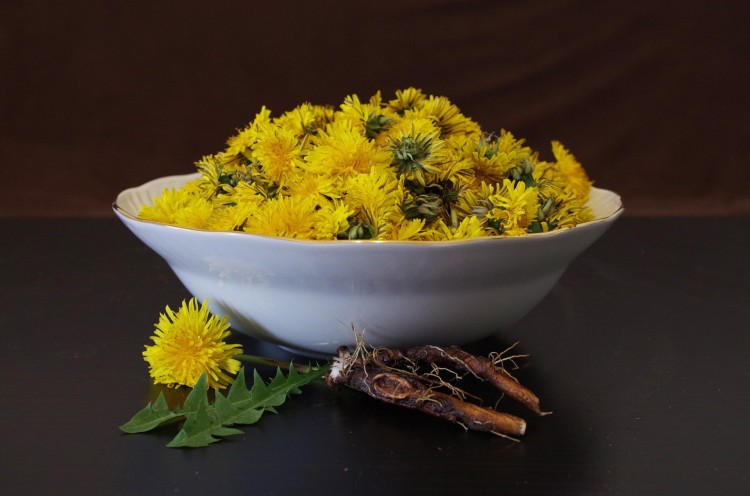
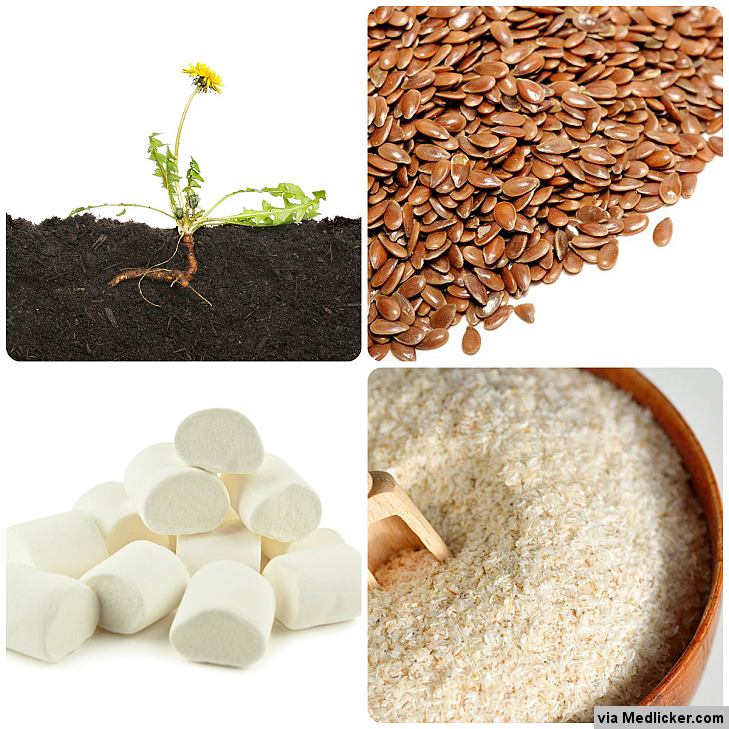
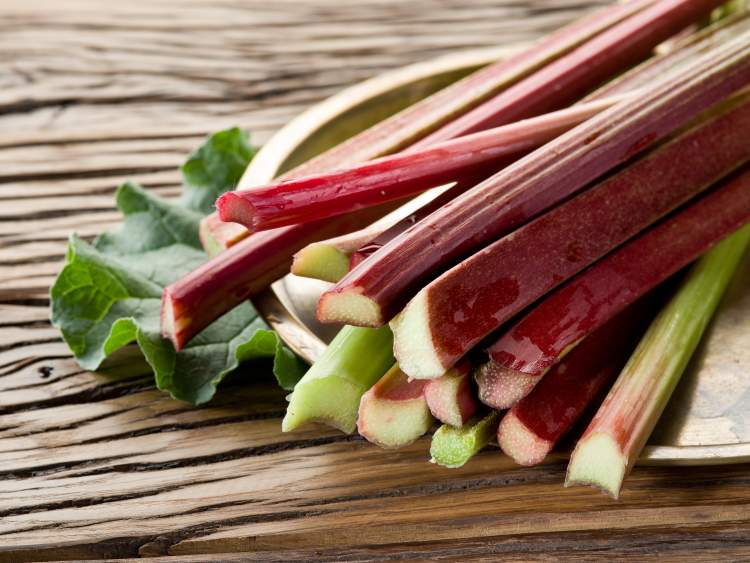
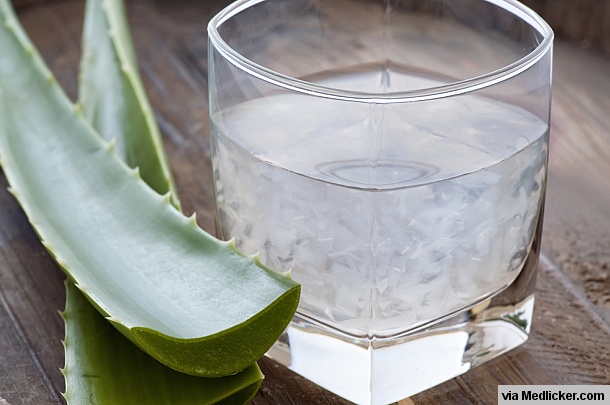


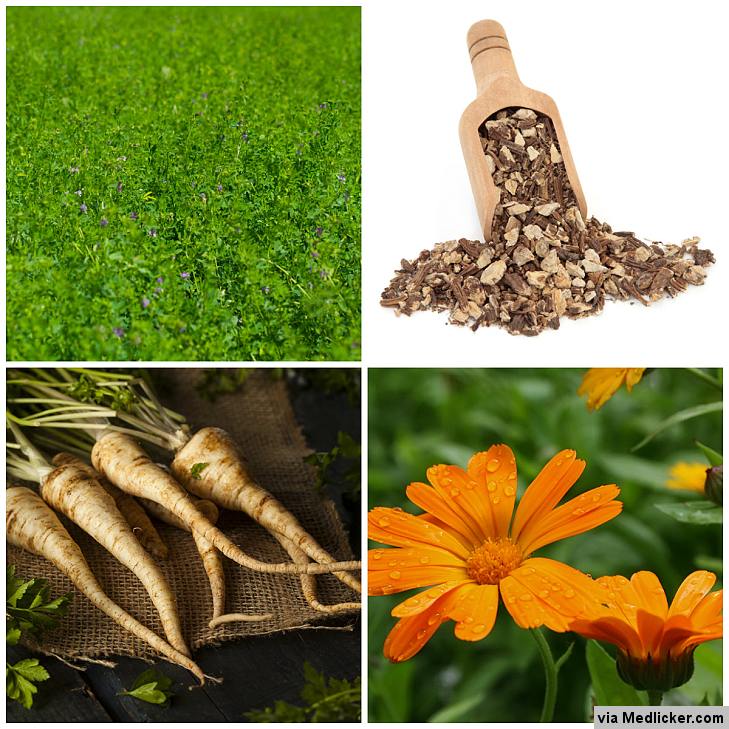



Ache in left arm that you should not ignore
Alkaline water dangers: why you should not drink it
How to Avoid Sleepiness While Studying?
23 Foods That Increase Leptin Sensitivity
Low dopamine (e.g. dopamine deficiency): causes, symptoms, diagnosis and treatment options
Swollen taste buds: the ultimate guide to causes, symptoms and treatment
Thin endometrial lining: causes, symptoms, diagnosis and treatment
Pimples inside nose: the complete guide
Holes in tonsils: definition, symptoms, treatment and prevention
How to deal with an ingrown hair cyst
Allegra vs. Zyrtec vs. Claritin
How to get rid of phlegm (excessive mucus) in throat? Detailed guide to medical and home remedies, symptoms and causes
What causes stomach ache after meals?
Allergy to penicillin and alternative antibiotics
Liver blood test results explained